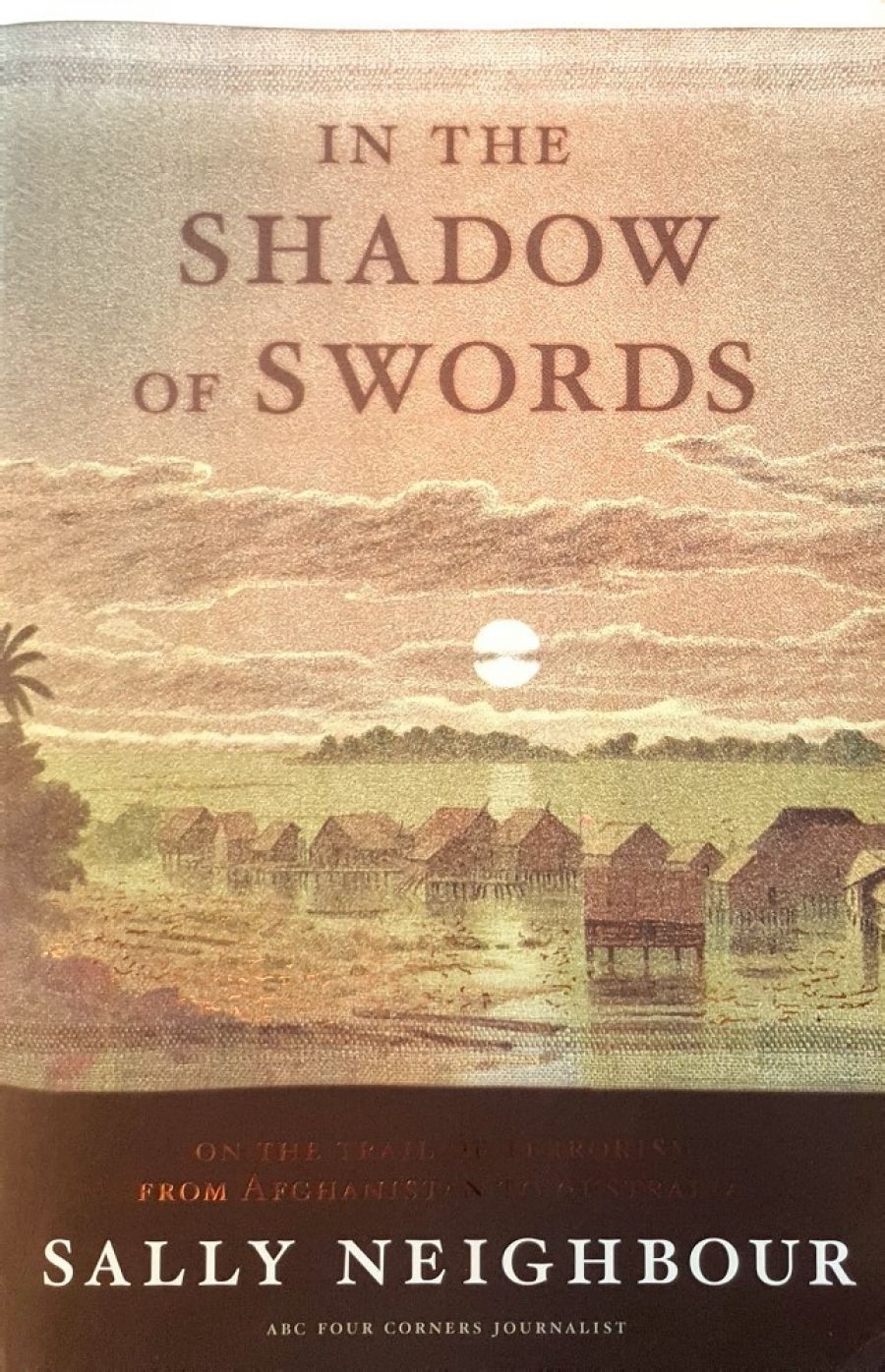
- Free Article: No
- Contents Category: Journalism
- Review Article: Yes
- Article Title: Ravine of hate
- Online Only: No
- Custom Highlight Text:
Sally Neighbour wrote this book as a direct response to the Bali bombing in October 2002. She was convinced, by that event and its aftermath, that fundamentalist Muslims’ hatred of Westerners was creating an unfamiliar world whose rules she and most Australians did not understand. We are in her debt. In clean prose, informed by meticulous research into a wide range of sources, Neighbour stitches together countless loose strands until they cohere persuasively into a dismaying pattern. Her courage, dispassion and skill present us with conclusions as unpleasant as they are inescapable. Journalism is a term frequently used pejoratively, but this is a thoroughly journalistic book in the best possible sense: it presents evidence, shapes arguments and distils information – a vast amount of information – intelligently and responsibly. Neighbour’s disturbing claims are founded on hard evidence and sober analysis.
- Book 1 Title: In the Shadow of Swords
- Book 1 Subtitle: On the trail of terror from Afghanistan to Australia
- Book 1 Biblio: HarperCollins, $29.95 pb, 374 pp
- Book 1 Cover Small (400 x 600):

- Book 1 Cover (800 x 1200):

Her conclusions are easier to summarise than to wrestle with: they are not new, but they strike with fresh force because of the cool intelligence shaping and integrating the raw material of her research. Her book illustrates, for example, the inexorably political dimension of fundamentalist Islam. Neighbour shows plainly that the separation of church and state (so crucial to Western democracies) is anathema to terrorists because it threatens their ferocious devotion; and she explains the genesis of such beliefs, making fanaticism apprehensible if not comprehensible. By no means an apologist, she nevertheless vividly illuminates the depth of Muslim anger over past and present persecutions and humiliations, showing the depressingly cyclical and vengeful nature of bloodletting: it is at least partly the rape and murder of Muslim women and children that have incited terrorism.
The book demonstrates the ways in which Australia’s foreign policy has aroused Muslim fury. It shows how, incredibly, Jemaah Islamiyah (JI) could root and thrive in Australian soil without the knowledge of our authorities or intelligence agencies. It traces the development of al Qaeda, its connections with JI, and the extent to which these organisations evolved in response to policies adopted by Western countries. It shows with devastating clarity the failure of the Indonesian government to admit that JI constituted a threat (or indeed that it even existed) when crushing evidence existed to that effect. It is similarly clear-sighted about the breakdown of communications between US intelligence services and their Australian counterparts. Perhaps its most chilling achievement, however, is its depiction of the implacability of the Muslim fanatic. The ‘ravine of hate’ described by Abu Bakar Bashir is a non-negotiable space yawning between us and them.
The great majority of devout Muslims in Australia and elsewhere oppose violent jihad: it cannot be said too frequently that most Muslims are not terrorists. Jihad is, however, a way of life for those Muslims for whom the rules of Islam represent justification for murder, and their interpretation of jihad is a struggle to the death. Amrozi spoke during his trial of the ‘million Amrozis’ who would follow in his footsteps were he to die. Given the evidence thus far, it is hard to disbelieve him. Many of the million will be puppets like Amrozi himself, but nonetheless dangerous when they are backed by the controlling intransigence of the puppet-masters who, fired by hatred, develop, finance, and direct terrorist policy. Neighbour compellingly evokes the terrorist chiefs who flicker menacingly around the spotlight of the global media. She enables us to glimpse the obsession of these men, for whom paradise, according to the Koran quote from which the book’s title derives, lies beneath the shadow of brutal and blood-stained swords.
The list is grim already: the World Trade Centre, Bali, Madrid. These were not random incidents, as Neighbour demonstrates, but the products of long, intricate and carefully planned campaigns. Nothing is more certain than that these will continue, and that Australia and other Western countries will be made yet more aware that fanatics regard our lives and our societies as corrupt and disposable.
Perhaps the hardest thing to achieve (ironically, in a battle whose parameters seem so overwhelmingly defined by good and evil) is detachment from moral perspectives of righteousness in order to concentrate on the pragmatism of survival. Rhetoric about the ‘axis of evil’ achieves little. According to Neighbour, the perpetrators of what we see as evil acts believe unshakeably that we ourselves are the evil ones. Fundamentalist Muslims insist that it is not they who are the true terrorists but President George W. Bush. In the light of the destruction (frequently inflicted on people as innocent as those killed in Bali) in Iraq and Afghanistan, in the political and military maelstrom of claim and counterclaim, this is not a groundless accusation and should not be treated as one. This is emphatically not to say (nor does Neighbour say it) that terrorism is justified.
Perhaps the most important conclusion in the book is that the war on terrorism is not a war on a country and cannot be undertaken as if it were such. The invasions of Afghanistan and Iraq, whatever their ostensible justification, not only failed to dispel terrorism but inflamed it. Traditional modes of warfare, apart from being expensive and otherwise disagreeable, do not work. Other avenues must be found.
During this time, we must seek all the wisdom and farsightedness of which we and our leaders are capable. These are not qualities many Australians associate with politicians, and still less with our current government. Perhaps, however, hard questions during perilous times will elicit discerning judgment and authentic leadership. Otherwise, we are doomed by the shadows of which Neighbour writes.


Comments powered by CComment